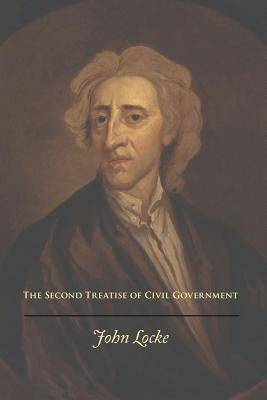
Je cadeautjes zeker op tijd in huis hebben voor de feestdagen? Kom langs in onze winkels en vind het perfecte geschenk!
- Afhalen na 1 uur in een winkel met voorraad
- Gratis thuislevering in België vanaf € 30
- Ruim aanbod met 7 miljoen producten
Je cadeautjes zeker op tijd in huis hebben voor de feestdagen? Kom langs in onze winkels en vind het perfecte geschenk!
- Afhalen na 1 uur in een winkel met voorraad
- Gratis thuislevering in België vanaf € 30
- Ruim aanbod met 7 miljoen producten
Zoeken
€ 16,45
+ 32 punten
Uitvoering
Omschrijving
John Locke's Second Treatise of Government was one of the most influential works read by America's Founding Fathers. As Thomas P. Peardon wrote, "John Locke [was] . . . a main source of the ideas of the American Revolution of 1776. . . . So close is the Declaration of Independence to Locke in form, phraseology, and content, that Jefferson was accused of copying the Second Treatise. This, of course, he did not do. But the ideas of the Declaration are those ideas of English constitutionalism to which Locke had given expression. . . . Nor was Locke's influence confined to the Declaration of Independence; it was felt in the ideas and often the phrasing of State Declarations and Constitutions. He was quoted, too, in the Federal Convention of 1787 and often referred to thereafter. . . . Locke's Second Treatise is . . . the distillation of a wisdom derived from centuries of struggle for liberty and justice in government."
Specificaties
Betrokkenen
- Auteur(s):
- Uitgeverij:
Inhoud
- Aantal bladzijden:
- 154
- Taal:
- Engels
Eigenschappen
- Productcode (EAN):
- 9781627300759
- Verschijningsdatum:
- 19/10/2013
- Uitvoering:
- Paperback
- Formaat:
- Trade paperback (VS)
- Afmetingen:
- 152 mm x 229 mm
- Gewicht:
- 235 g

Alleen bij Standaard Boekhandel
+ 32 punten op je klantenkaart van Standaard Boekhandel
Beoordelingen
We publiceren alleen reviews die voldoen aan de voorwaarden voor reviews. Bekijk onze voorwaarden voor reviews.









